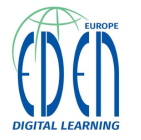I have been working with fellow Pro-Vice-Chancellors at The Open University UK on a policy to support Scholarship, that is to say a policy and associated practices and resources to support not only that we understand by the terms research, but also the wider range of practices that have the activity of enquiry at their heart. Enquiry in this context is impartial, seeks to build on existing knowledge and submits itself to judgement by immediate colleagues, networks of peers or the public, or indeed all three.
We most often associate this set of practices and values in a University with research as is conventionally understood: discovery or genesis research. However as Ernest Boyer set out back in 1997 scholarship has a wider set of meanings and practices. He defined them in four groups as:
- Discovery scholarship is most closely aligned with traditional research. Discovery contributes not only to the stock of human knowledge but also to the intellectual climate of the university. New research contributions are critical to the vitality of the academic environment.
- Integration focuses on making connections across disciplines. One interprets one’s own research so that it is useful beyond one’s own disciplinary boundaries and can be integrated into a larger body of knowledge. The rapid pace of societal change within a global economy has elevated the importance of this form of scholarship.
- Application focuses on using research findings and innovations to remedy societal problems. Included in this category are service activities that are specifically tied to one’s field of knowledge and professional activities. Beneficiaries of these activities include commercial entities, non-profit organizations, and professional associations.
- The scholarship of teaching (and learning) recognizes the work that goes into mastery of knowledge as well as the presentation of information so that others might understand it.
Boyer’s work has been influential in steering Higher Education institutions towards a plural understanding of what Scholarship in a University is, and therefore how a wider range of activities than those that have traditionally been called research should be valued and supported. His work delivers recognition of the value of all forms of scholarship in a non-hierarchical way.
It is interesting to note however that Scholarship is now a form of activity in its variety of far wider interest than just the world of the University. Firstly it has over the last 30 years spread down through the age groups. While 30 years ago enquiry in the sense of independent, even if supported, research was primarily restricted to postgraduate work, it has now spread into baccalaureate or undergraduate degrees, and further into schools, as important practice that learners need opt master. In primary schools in England plans are being made now for ICT to be an essential element in the curriculum, and enquiry will rightly be at the core of that activity for children aged 5-11.
It is also true that Enquiry is a core activity in almost all fields. Thus the emphasis put on knowledge workers and on knowledge management in all sectors of economic and social activity. The new technologies have played, as is well known, an extraordinary part over the last 10 years or more in liberating knowledge from the locally produced and managed to the universally available with contributions from around the world. Enquiry, supported by scholarship in the broader sense as proposed by Boyer, thus stands at the heart of human activity.
EDEN’s commitment to scholarship over its entire lifetime through its conference papers, its journal EURODL , and most recently through the book on developments in distance and e-learning over the last decade, to be launched at our 2009 Gdansk conference, has been demonstrated to have been an absolutely correct commitment for a professional association and network. Our journal, web-carried, open source and free at the point of delivery, represents as do others, a very contemporary focus for scholarship.
Lastly, and on another note, it is very good to know that this blog has gained some 233 readers per day according to our statistics, and even reached the total of 10,332 in the month of October last year. Greetings to you all from Cambridge, where the blossom has been beautiful (see the photo of clematis in bloom in my garden, just to lift the heart!)





